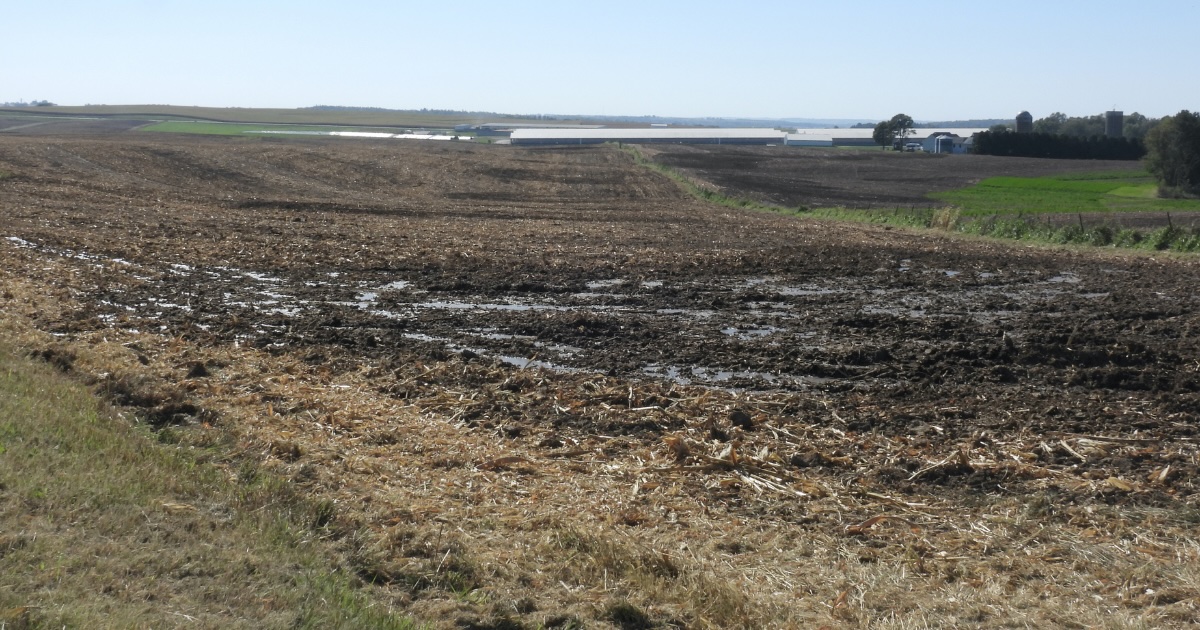IRONWOOD FOREST NATIONAL MONUMENT, Ariz.—Standing in front of a crowd of 100 people Saturday, Mike Quigley pointed out into the distance to a nearby copper mine. “We can have that,” he said. Then he gestured to the mountain behind him. “Or we can have this.”
For 25 years, this stretch of 129,000 acres of the Sonoran desert north of Tucson, Arizona, has been protected as a haven for scientific research, and a buffer against the expansion of existing or new mines to the area. But locals worry the monument’s protections may soon be reduced. Ironwood Forest is one of six national monuments the Trump administration has signaled may be reduced in size to make way for more development and extraction.
Ironwood Forest—named the Ironwood tree that’s famed for its centuries-long lifespan and vital importance to the Sonoran desert ecosystem—was attacked by the first Trump administration, Quigley, the Arizona state director for The Wilderness Society, told the crowd. Eight years ago, the Trump administration reviewed 22 national monuments for reductions, and Asarco, a multinational mining giant and subsidiary of Grupo México, and the Arizona mining industry pushed for Ironwood’s size to be reduced to expand mining in the area. Local pushback, Quigley said, prevented that.
“We have to win every time,” he said. “The other side only needs to win once” to get what they want, and for an area to lose protections.
The rally, hosted by Friends of Ironwood Forest and other conservation groups at the monument named for the tree, was just one of a series of events across the country over the weekend to support the protection of national monuments and the Antiquities Act, the law that allows presidents to create new national monuments, which celebrated its 119th anniversary Sunday.
Over 160 areas have been protected using the act, with iconic sites like Grand Canyon National Park first starting off as monuments. The creation of monuments and the protection of public lands managed by the federal government for the American people remain broadly popular, but the law and protected areas have come under attack from some Republicans and the Trump administration, who argue the use of the Antiquities Act to safeguard land is an abuse of power not in the best interest of local communities.
In March, the Trump administration announced it would eliminate California’s Chuckwalla and Sáttítla Highlands national monuments before removing language from a White House fact sheet announcing that decision. Then, in April, The Washington Post reported the administration was considering shrinking Baaj Nwaavjo I’tah Kukveni—Ancestral Footprints of the Grand Canyon, Ironwood Forest, Chuckwalla, Organ Mountains-Desert Peaks, Bears Ears and Grand Staircase-Escalante national monuments. The previous Trump administration shrank Bears Ears and Grand Staircase-Escalante national monuments, which prompted environmental groups, tribes and other groups to sue the government. The monuments were restored to their original sizes, or slightly expanded, by the Biden administration.

Those two monuments have been advocated for by local tribes and environmental groups, as well as some local towns, but have been criticized by state lawmakers and some local leaders.
Ironwood Forest, on the other hand, has had broad local support from environmental groups as well as Pima County and Tucson. The only opposition, monument supporters say, is from the nearby mine. The city of Marana, the city of Tucson and Pima County all issued official proclamations recognizing Monday as Ironwood Forest Day. Pima County’s Board of Supervisors has also voted to oppose any reduction of the monument’s size by the Trump administration to facilitate resource extraction.
“We know as folks who live here in the Sonoran desert that it’s not just land,” said Jennifer Allen, a county supervisor whose district includes the monument. “It’s about who we are. And how we treat our land is a reflection of how we treat ourselves. It’s a reflection of how we think about the future and future generations and the place that we want to call home.”


The Trump administration, she said, is looking to go against that. Doug Burgum, secretary of the Interior Department, has criticized the extent to which the Antiquities Act has been used, saying its original intention was to protect “Indiana Jones-type archeological” areas and not whole landscapes, despite the law stating the president can protect as much area as needed to conserve a site.
Allen sees deeper threats in the attacks on the Antiquities Act.
“We have a federal administration that has been going through and figuring out how we literally sell off and give away the strength of our country to the highest bidder, turning it into not a government, but a business, so that folks at the top end can profit off of our land, our water, our air, on the backs of our people,” she said.
About This Story
Perhaps you noticed: This story, like all the news we publish, is free to read. That’s because Inside Climate News is a 501c3 nonprofit organization. We do not charge a subscription fee, lock our news behind a paywall, or clutter our website with ads. We make our news on climate and the environment freely available to you and anyone who wants it.
That’s not all. We also share our news for free with scores of other media organizations around the country. Many of them can’t afford to do environmental journalism of their own. We’ve built bureaus from coast to coast to report local stories, collaborate with local newsrooms and co-publish articles so that this vital work is shared as widely as possible.
Two of us launched ICN in 2007. Six years later we earned a Pulitzer Prize for National Reporting, and now we run the oldest and largest dedicated climate newsroom in the nation. We tell the story in all its complexity. We hold polluters accountable. We expose environmental injustice. We debunk misinformation. We scrutinize solutions and inspire action.
Donations from readers like you fund every aspect of what we do. If you don’t already, will you support our ongoing work, our reporting on the biggest crisis facing our planet, and help us reach even more readers in more places?
Please take a moment to make a tax-deductible donation. Every one of them makes a difference.
Thank you,

















